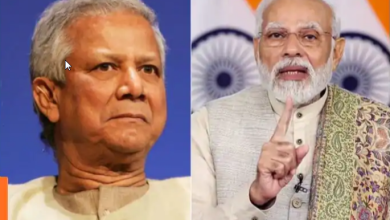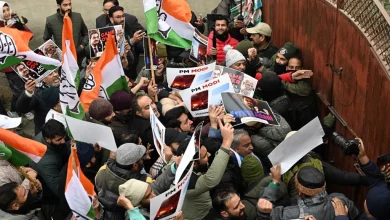India’s wealth gap widens as billionaires flourish amidst widespread poverty: Report
 Islamabad: Despite being hailed as the world’s fastest-growing economy, India’s wealth gap continues to widen, with the richest billionaires enjoying unprecedented prosperity while millions struggle in poverty.
Islamabad: Despite being hailed as the world’s fastest-growing economy, India’s wealth gap continues to widen, with the richest billionaires enjoying unprecedented prosperity while millions struggle in poverty.
According to Kashmir Media Service, India now boasts a record number of billionaires, with Mukesh Ambani, India’s wealthiest billionaire, recently hosting a lavish pre-wedding party for his son, featuring a performance by international pop star Rihanna, at a staggering cost of $150 million.
This extravagant display of wealth has sparked outrage among many Indians who are struggling to make ends meet. Many argue that India’s economic growth under Prime Minister Narendra Modi is uneven, with significant disparities between the rich and the poor. Despite claims of poverty reduction, many economists question the accuracy of the government’s data.
Experts say that the Modi government is obstructing efforts to accurately measure poverty levels by cherrypicking the release of critical data and surveys and failing to address the chronic lack of secure jobs for the almost 1 billion Indians.
According to a recent World Inequality Lab report authored by the economist Thomas Piketty and others, India’s top 1% own more than 40% of its wealth. The report found that the concentration of wealth at the top had become particularly pronounced over the past decade, and India was now more unequal than during British colonial rule.
Rising inflation and lack of jobs continue to strain the lower half of the population, threatening Modi’s popularity as the country goes through elections. In rural areas like Maharashtra’s Melghat, poverty is stark, with families fighting to survive on meager daily wages, with limited access to basic necessities like clean water and sanitation.
Govt promises of job creation have not materialized, leading to widespread skepticism among jobless youth. The frustration is palpable, with many feeling left behind by the government’s focus on development for the wealthy. As Modi campaigns for re-election, the growing wealth gap and unemployed challenge his narrative of inclusive economic growth.
As rising inflation has hit poorer families the hardest, frustration at the growing chasm between rich and poor is threatening to dent Modi’s popularity. Unemployment – a problem that lies at the heart of the country’s widening inequality – remains a major issue for his re-election campaign as the bottom 50% grapple with a chronic lack of decent jobs.
Critics argue that the government’s welfare schemes have come at a massive cost of $400 billion, while spending on essential public services like health and education has decreased proportionally.
Reetika Khera, a professor at the Indian Institute of Technology Delhi, said that Modi is taking credit for schemes that were introduced before he came to power and spinning them wildly out of proportion when it comes to their lasting impact. “The government’s policies have only widened the wealth gap, benefiting the rich at the expense of the poor. It’s time for a change”, Reetika added.
Maitreesh Ghatak, a professor of economics at the LSE, said what data there was clearly showed that India’s growth was lopsided, and he described the failure of prosperity to trickle down as a problem that has become accentuated in the last 10 years.








